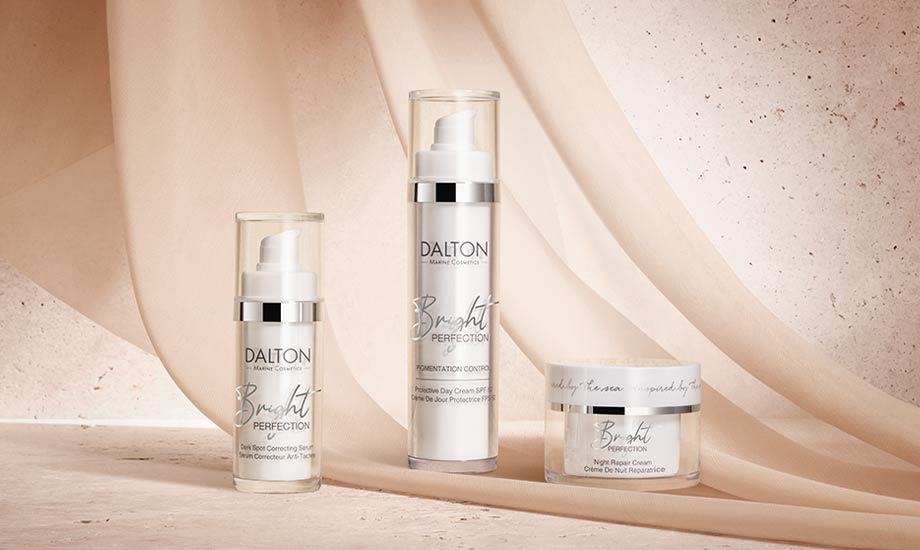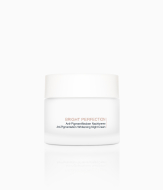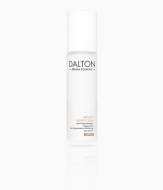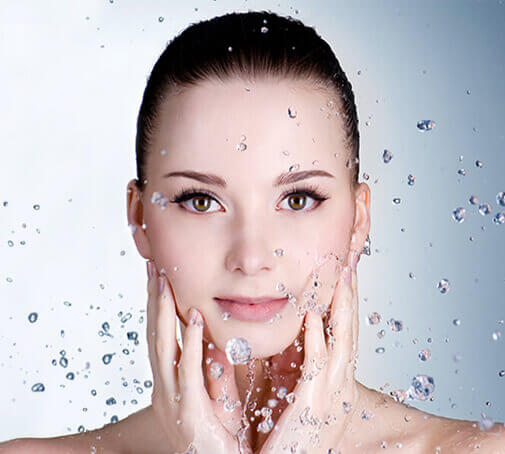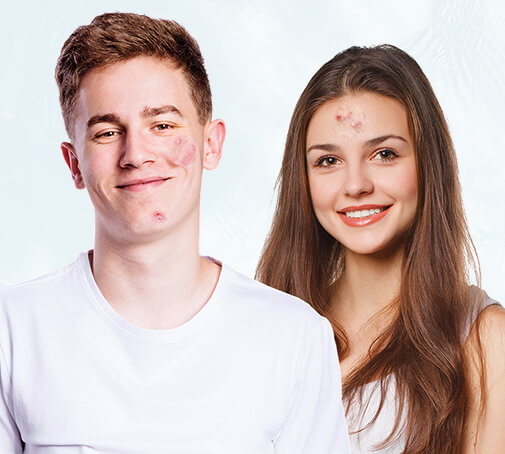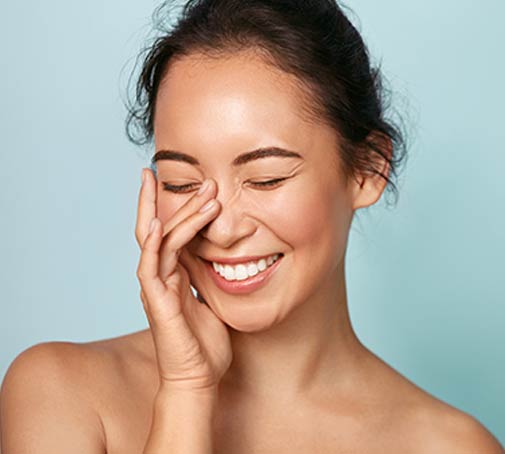
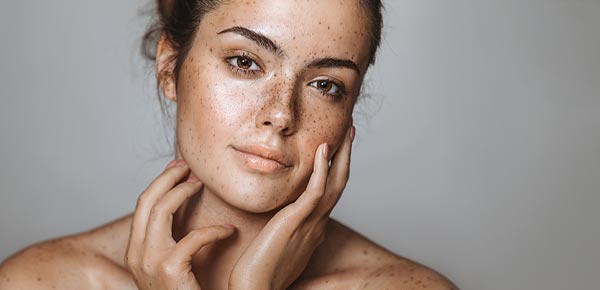
How to Get Rid of Dark Spots
Is your skin prone to hyperpigmentation and dark spots? In the following, we want to talk about how dark spots occur, how you can treat and prevent them, and if it is possible to remove them permanently.
Pigmentation Disorders: What Causes Them?
First of all, what exactly is a skin pigmentation disorder? Hyperpigmentation is characterized by skin patches or spots that are darker than the surrounding skin. This includes age spots, melasma, post-acne marks and café au lait macules. There are many different forms and types of hyperpigmentation. Some pigmentation irregularities, such as freckles, tend to appear in childhood, while others typically manifest later in life in response to various triggers. Aside from genetics, these are the most common external triggers that can contribute to hyperpigmentation and pigmentation disorders:
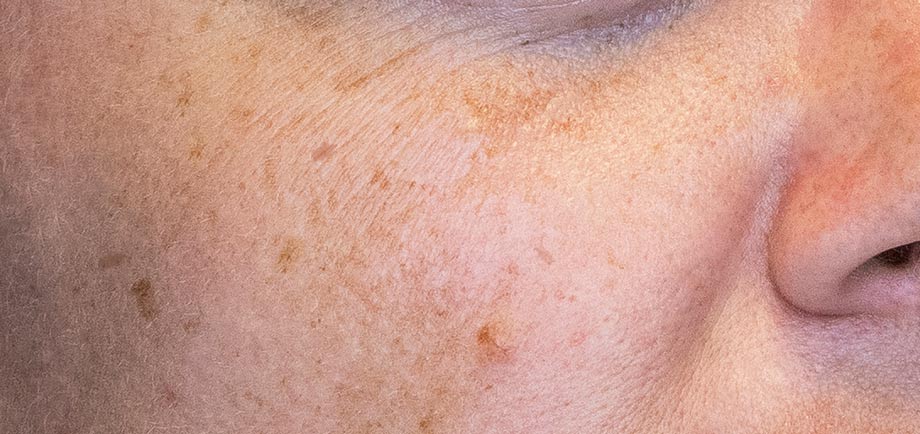

- Excessive sun exposure
- Hormonal influences (pregnancy, birth control pill, menopause)
- Environmental pollution
- Natural skin aging
- Post-inflammatory hyperpigmentation following acne (Pigmented marks that can linger for months, long after breakouts and acne have healed)
- Excessive sun exposure
- Hormonal influences (pregnancy, birth control pill, menopause)
- Environmental pollution
- Natural skin aging
- Post-inflammatory hyperpigmentation following acne (Pigmented marks that can linger for months, long after breakouts and acne have healed)
How Does Hyperpigmentation Develop?
Hyperpigmentation and dark spots are the result of a local overproduction of melanin. Melanin is a dark brown to black pigment that is responsible for our skin color and also for giving us a summer tan. When exposed to UV light, the skin increases production of melanin in the melanocytes to protect itself from sun damage. Melanocytes are highly specialized melanin-producing cells located in the bottom layer of the epidermis.
Common Forms of Hyperpigmentation
Dark spots and hyperpigmentation appear primarily on the face, but they can also affect other parts of the body. Many pigmentation conditions are benign and completely harmless. In that case, it is up to you if and how you want to treat them or even have them removed.


Age spots:
As the name suggests, age spots tend to be more common in older people. Unfortunately, as we age, cell renewal slows down quite significantly and it takes longer to replace and repair old skin cells. After years of exposure to UV light and pollution, melanin builds up and creates small, flat, darkened patches of skin, which are also called liver spots, sun spots or solar lentigines.
Freckles:
Freckles are caused by genetics and exposure to the sun. The small brown spots are usually found on the face or other sun-exposed areas of the body. They are typically darker during summer, while they fade or even disappear in winter when there is less UV exposure.
Age spots:
As the name suggests, age spots tend to be more common in older people. Unfortunately, as we age, cell renewal slows down quite significantly and it takes longer to replace and repair old skin cells. After years of exposure to UV light and pollution, melanin builds up and creates small, flat, darkened patches of skin, which are also called liver spots, sun spots or solar lentigines.
Freckles:
Freckles are caused by genetics and exposure to the sun. The small brown spots are usually found on the face or other sun-exposed areas of the body. They are typically darker during summer, while they fade or even disappear in winter when there is less UV exposure.
Melasma:
Hormonal changes can affect the appearance of the skin. Melasma or chloasma is a skin pigmentation disorder characterized by dark spots that often appear during menopause or when using hormonal contraception, but it can also be triggered by sun exposure. Many pregnant women get melasma, which is why it is also known as "the mask of pregnancy". Melasma will often disappear after birth.
Post-inflammatory hyperpigmentation:
Post-inflammatory pigmentation is a discoloration that occurs as a result of inflammation or injury (such as acne, burns, cuts, eczema or psoriasis).
Post-inflammatory hyperpigmentation:
Post-inflammatory pigmentation is a discoloration that occurs as a result of inflammation or injury (such as acne, burns, cuts, eczema or psoriasis).
How to Prevent Hyperpigmentation and Dark Spots
- ALWAYS use broad-spectrum sun protection with a high UV protection factor (SPF 50) – all year long and even indoors if you are sitting right next to a window. If you are pregnant, we recommend using a mineral-based sunscreen. Be sure to protect not just your face, but also your hands to prevent sun-induced dark spots from forming. There are special anti-pigmentation hand creams you can use. Our tip: Just mix some sunscreen with your hand cream.
- Dermatologists recommend avoiding prolonged sun exposure or tanning beds. These are among the most common causes of dark spots on the skin.
- Wear a hat or other clothing to provide additional sun protection for your face and neck.
- Support your skin with high-quality dark spot corrector products to get rid of dark spots and get hyperpigmentation under control.
- Genetics are a major factor. Have you noticed that hyperpigmentation runs in your family? If that is the case, you should take special care of your skin and use suitable skincare products to prevent skin pigmentation from becoming worse.
- ALWAYS use broad-spectrum sun protection with a high UV protection factor (SPF 50) – all year long and even indoors if you are sitting right next to a window. If you are pregnant, we recommend using a mineral-based sunscreen. Be sure to protect not just your face, but also your hands to prevent sun-induced dark spots from forming. There are special anti-pigmentation hand creams you can use. Our tip: Just mix some sunscreen with your hand cream.
- Dermatologists recommend avoiding prolonged sun exposure or tanning beds. These are among the most common causes of dark spots on the skin.
- Wear a hat or other clothing to provide additional sun protection for your face and neck.
- Support your skin with high-quality dark spot corrector products to get rid of dark spots and get hyperpigmentation under control.
- Genetics are a major factor. Have you noticed that hyperpigmentation runs in your family? If that is the case, you should take special care of your skin and use suitable skincare products to prevent skin pigmentation from becoming worse.
Skincare for Hyperpigmentation
A quality skincare routine is very important if you want to get hyperpigmentation and dark spots under control and achieve a more even skin tone.
1. The perfect moisturizer for your skin type: Skin-brightening face creams help to treat and prevent hyperpigmented skin. Anti-dark spot day creams with SPF offer a perfect blend of protection and moisturizing benefits. If you want to target fine lines and wrinkles at the same time, we recommend anti-aging creams for hyperpigmentation. There are also special hand creams to lighten dark spots and even your skin tone.
2. Serums are very easy to incorporate into any skincare routine to enhance the effect of your moisturizer. Our Dark Spot Correcting Serum helps to prevent and improve skin pigmentation issues, while infusing dry skin with a boost of hydration.
3. Chemical peels with alpha hydroxy acids (AHAs) exfoliate dead skin cells from the top layer of the skin, creating a bright and radiant complexion. The great thing about chemical peels is that they come in different concentrations and can be used to treat so many different skin concerns and skin types, including sensitive skin, oily skin, wrinkles, acne scars and pimple marks. For the best and quickest results, we recommend booking a professional AHA peel at your local beauty salon.
4. Perfect your complexion in just one step! BB creams are a quick fix for imperfections like redness, blemishes and dark spots. Tip: Mix the BB Cream with some sunscreen to protect your skin from sun damage! (But keep in mind that the sunscreen loses some of its effect that way, which is why you should only use a sun cream with at least SPF 50 or higher). Depending on the degree of hyperpigmentation, you can also use foundations and camouflage make-up with high coverage to cover discoloration.
5. If you want to get rid of dark spots permanently, it is important to combine your skincare routine at home with a professional hyperpigmentation treatment at your aesthetician's office. There are different treatment options depending on your skin type and needs: Professional AHA peels, microdermabrasion or Aqua Facial – just ask your aesthetician for advice.
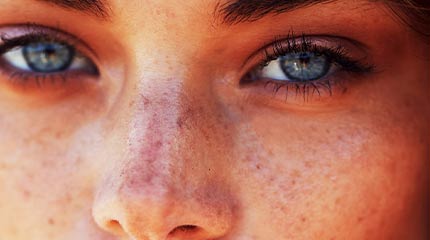

Our DALTON Bright Perfection Collection contains a blend of highly concentrated active ingredients to fight hyperpigmentation.
96%* of users observed a REDUCTION IN DARK SPOTS.
92%* of users found their PIGMENTATION to be MORE UNIFORM.
*in vivo test after 56 days: Application twice daily, 25 women aged 40-65 with dark spots on cheeks
Our DALTON Bright Perfection Collection contains a blend of highly concentrated active ingredients to fight hyperpigmentation.
96%* of users observed a REDUCTION IN DARK SPOTS.
92%* of users found their PIGMENTATION to be MORE UNIFORM.
*in vivo test after 56 days: Application twice daily, 25 women aged 40-65 with dark spots on cheeks

